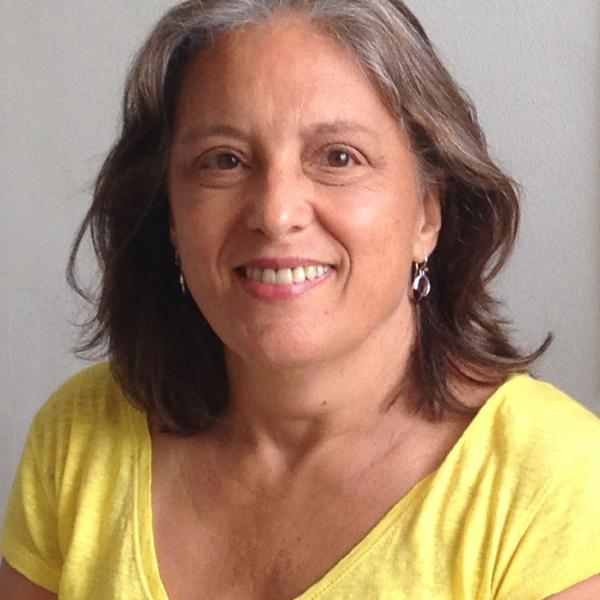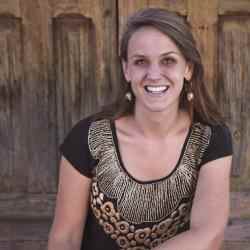Introdução
Mass communication plays a key role in cementing cultural beliefs about gender and behaviors that may encourage discrimination. Jacira Melo founded the Instituto Patrícia Galvão to join together media and women’s rights organizations so that they could collaborate on issues of gender discrimination, violence towards women and strategies to counteract the male-dominant culture of Brazil. To carry out the task she manages to integrate three groups that, while interconnected by similar objectives, are often in conflict: the media (communication and reporters), political and social agents (civil society and women’s rights citizen sector organization’s) and the public opinion.
A nova ideia
The idea behind the Instituto Patrícia Galvão is to use the media as a tool to generate social, cultural, and political change in the area of gender prejudice. Jacira Melo incites criticism on how women are depicted in the media, and invites critique and proposals of change in order to reshape the society’s mentality and encourages public debate.
To interact with the media, Patricia Galvão has set up a Web portal Violence Towards Women Portal (Portal Violência Mulher)—where research papers, publications from several women’s institutes and organizations directed to journalists, researchers, university students, etc. are made available. The portal is accessed daily by the press and has become a benchmark in gender matters by creating ties and a permanent dialogue between media professionals, journalists, advertisement experts and researchers.
Jacira has been working both with political and social agents through major media campaigns and via public action against the socially abusive media. The institute illuminates some of Brazil’s most pressing gender issues, offers advice and information for women seeking to get involved in the movement, proposes major behavior changes, and stimulates preemptive actions that any member of the community can take. A wide network of partners—mainly women’s rights organizations—allows Jacira the collective power to have a broad scale and scope.
The Instituto Patrícia Galvão also uses the databases of renowned research centers to collect data on women’s aspirations and behavior, legitimize its actions, and mobilize public opinion. Moreover, it organizes local women’s groups inside the assisted communities to deliberate on and elucidate problems, and develop real action plans for strategic solutions.
O problema
The Brazilian broadcasting system is predominantly privatized. The laws that regulate this whole system are sparse and outdated, and those laws that do exist are rarely enforced. In the 1990s a debate began on the standard of TV programs. Such debate is rooted mainly in the notion that TV has the greatest reach and influence on the Brazilian population of all forms of media research reveals that 88 percent of the country’s homes have at least one TV set. The struggle against poor quality TV has spurred a debate on the need of an ethical code, with clear regulations, to avert and restrain excessive violence, sexism, racism, and pornography in television programming.
Brazilian women represent a major share of TV and radio audiences (53 percent) and of magazine (55 percent) and newspaper readers (49 percent). Such participation makes them a strategic concern in the formulation of content broadcast by these media and raises many questions: How are women depicted in the media, and in fictional stories in particular? What effect do these depictions have on their self-perception and on society’s perception of women in general? In a country where soap operas are immensely popular, and with women as their primary audience, the development of tracking and analytical tools on how the male and female figures are presented to consumers is particularly important.
The debates over codes of conduct and regulation of the advertising activity abound. The Conar—the self-regulatory organism of advertising agencies in the country—has been eliciting a permanent dialogue over the image of women in publicity messages. In 2003, only five percent of all registered complaints had to do with sexual exploitation in advertisements, though it must be stressed that such types of propaganda usually engender ample debate and multiple accusations. Clearly, there is a need to strengthen the debate around media depiction of women in order to stimulate public opinion and engage civil society to demand proper action from surveillance public agencies.
Women’s movements in Brazil typically see the media as a privileged arena for political action, not as a means of broadcasting their actions and speeches to wide audiences. At the same time, such movements find it difficult to obtain media visibility. The mechanisms developed by these campaigns to follow up, research and survey the media, as well as to apply significant pressure to government, businesses, and regulatory agencies, are insufficient to promote a balanced nonstereotyped image of women in the media.
Social movements need to measure levels of societal engagement and public opinion on their issues of interest. Opinion polls are tools of great impact with the media, as well as the executive, legislative and judiciary powers. In this respect, the Instituto Patricia Galvão has been working to join those groups and use mass media to change Brazilian culture rather than perpetuate its social inequalities.
A estratégia
Jacira’s first strategic move was the creation of Instituto Patrícia Galvão and the Web portal that gives access to the main Brazilian research papers on women’s conditions as well as abstracts to be used as press releases. The portal, permanently supplied with information by women’s organizations, serves as a bridge for dialogue between these groups and the media professionals who, consequently, begin to tackle the gender discrimination problems in a more investigative way and with greater concern towards women’s rights.
To legitimize the work being done, the institute works with major research centers, such as the IBOPE (Brazilian Institute of Statistics and Public Opinion), and also uses the technique of qualitative research with focal groups, a tool that reveals how women see and evaluate TV programs and the advertising directed to them. Jacira gives those institutions qualitative and quantitative polls to support facts with numbers and to stimulate public debate about the critical areas related to women’s condition as well as the female image shaped and offered daily for consumption. For Jacira, working with discussion focal groups is essential to understanding what happens and the nuances of the issue. Thus, she started a project to constitute focal groups in association with another citizen sector organization based in Recife, setting up research groups in scattered areas of the city to collect reliable data about people’s behavioral and thought patterns.
Through these efforts, the institute is able to convey actual data to women’s movements on issues that demand public policy restructuring and, at the same time, it offers to the media undisclosed data that stresses the significance of the gender problem and how society perceives the problem, given the media’s inclination to support news with shocking figures and data.
In 2004, the Instituto Patrícia Galvão sponsored a pioneer research effort about violence against women, carried out by IBOPE and with the support of the Ford Foundation. It reached a representative sample of the Brazilian adult population, and besides updating the media on how the society sees the question, has contributed to a widespread media social campaign named “Where there is violence, everybody loses,” directed to male aggressors. This campaign was aired nationwide by all TV channels, notably by Globo TV network (the largest in Brazil). The plan is to air three campaigns annually about women-related themes, counting on the support of various TV stations. Jacira also plans to elaborate a working methodology for social campaigns that may be replicated by other organizations.
Jacira’s Instituto has also been monitoring products geared towards women that are known to present faulty merchandising content. Among the major examples are those that offer magic solutions to improve female beauty. The prominence of such manipulative advertising techniques resulted in a proposal to IDEC (Consumer’s Defense Institute), submitted by colleague Marilena Lazarini, to regulate TV merchandising. This research has been a fundamental pillar in the debates held with CONAR, a self-regulatory organism, and ANVISA, the national agency that regulates licensing rights for food supplements sold on TV, such as weight reducing products. With this work, Jacira believes she can foster the drafting—together with CONAR—of a standard ethics code about the image of women in advertising.
To widen the reach of women’s citizen sector organization’s, the institute fosters training courses in political communications that includes media planning, evaluation, and training. Some techniques of strategy planning are applied to the media: analysis and creation of sound reasoning, development of critical and pro-active positions, building bridges between political proposals and political action, identifying communication opportunities and strengthening partnerships to carry out impact activities. Those courses widen the reach of citizen sector organization’s actions and represent a source of income for the Instituto Patricia Galvão.
As a future strategy, Jacira plans to establish the Media Observatory. Unlike the work of ANDI (News Agency on Children’s Rights), the scope of this observatory is the television media and other means of mass communication directed to women. She intends to create a setting for a systematic tracking and analysis of media coverage, for interaction with journalists, directors, soap opera, and advertisement writers, and for the encouragement of civil society organizations to interact with the media, paying proper attention to the creation of sound argumentation and accurate information. The observatory will deal with monitoring, qualitative and quantitative research as well as debates with media users and specialists.
Jacira is also working on grant prizes to communication companies and advertising agencies that assume a positive marketing attitude towards women, annual listings of companies and advertising agencies that perpetuate gender inequalities, and incentive awareness and qualifying programs on gender perspective for media executives. The institute seeks association with different partners, including TV broadcasting companies, women’s (and other strategic) citizen sector organizations, social researchers, publicity executives, producers, opinion poll institutes, and private companies, all essential for getting to scale and reaching as many women as possible.
A pessoa
Jacira Melo is the child of a migrant couple. Her father, a military officer of strong authoritarian personality, came from Alagoas, and her mother came from the São Paulo countryside. Jacira was born in the outskirts of São Paulo city and was brought up involved in community activities. Two women have marked her life: her maternal grandmother and a friend’s grandmother. The former, she admired for the capacity to face her father’s authoritarianism and to take care of several orphan children. The latter, Ms. Maria Parteira, was a middle class lady who spent several days each week to act as midwife for impoverished women. From both these women, Jacira retained the memory of strength, decision-making capacity, generosity, sense of social justice and courage to face adversity.
Upon entering university, Jacira decided to live by herself for she felt the need to move away from her father’s unyielding character. She joined the Philosophy Faculty of the São Paulo State University in the late 1970s, a period of intense struggle for redemocratization, and she began to get involved with student movement’s activities. From her first week in college, she took part in seminars about racism, and sexual and women’s rights when she had the idea to form a women’s rights group within the faculty. She wanted to do something that would go beyond lectures and social service, something that really brought to light the questions about violence against women and made this subject part of the government agenda.
In 1980—with a group of other women—she founded the SOS Mulher (SOS Women), the very first service for women under threat of violence in the country. This was Jacira’s entré into political communication activity. The SOS Mulher organized meetings with victimized women, where they could talk with other people in the same situation and, together, would search for solutions. At a certain time, the group had over 80 working volunteers and was frequently invited by TV channels, newspapers, and other media to speak about gender issues. Jacira also helped organize a support group for governor Franco Montoro’s candidacy, which brought visibility to Brazil’s gender problem and made it clear that it should be treated as serious matter of public concern. Hence, in 1985, the first Special Police Station for Women’s Assistance (DEAM) and the COJE (Women’s Judicial Orientation and Processing Center) were established in order to render judicial assistance to women. Presently there are 339 DEAM’s in Brazil.
At this same time, Jacira founded a group to produce documentaries highlighting Brazil’s social and gender problems. During a period of military dictatorship and social injustices (street children, violence against women) these issues were not displayed on TV. Her efforts were rewarded with various prizes for documentary filmmaking and broad visibility. Over eight years, Jacira helped direct more than 40 documentary films, many of which have been used as educational supporting material in lectures, courses, seminars, and special events.
Jacira pursued a master’s degree in communication sciences, when she started to busy herself with activities and projects related to political communication aimed at increasing women’s presence in the public debate. By 1995, she started working as communication coordinator at the Female Health Network, created by Ashoka Fellow Maria José Araújo, and set up media training projects for women leaders, projects for dialogues with journalists and press dossiers on women’s health.
Between 1995 and 1998, Jacira received a fellowship from the MacArthur Foundation, working on a media-monitoring program about women’s health. This project afforded weekly analysis of the largest newspaper coverage on women’s health, evidencing the main characteristics of such coverage, the themes and adopted approaches, the social players that took part in press debates, main points of discussion, the flaws, etc. During her time with the Network, Jacira noticed that she spent too much time solving problems in order to make communication works feasible, and recognized the need for an organizational body to deal with questions of political communication as a whole. This led Jacira to create Instituto Patricia Galvão, a women’s organization dedicated to media and communication work.



